Through the ages, from ancient civilizations, indigenous peoples, to even your old grandmother, people have known about the value of plant medicines in curing common ailments, and even life-threatening diseases. Today the World Health Organization (WHO) estimates that more than 80% of the world’s population continue to use plant medicines as traditional remedies, and their primary health care tool.
Sadly this understanding and use of remedies that comes from plant medicine has been lost in North America. Here is a simple guide to some of the most common plants you can easily find in your own kitchen, garden, or grocery store.
Ginger
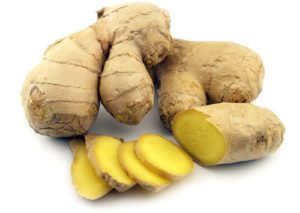
Ginger is known to have over 40 scientifically proven benefits. It is well known for its anti-nausea relief, but has been found to contain anti-bacterial, anti-oxidant, anti-viral, and anti-parasitic properties. Because of its anti-inflammatory properties, it is useful for relief from joint pain, headaches, menstrual pain, and more. In recent studies, ginger is also showing promise at fighting cancer, diabetes, non-alcoholic fatty-liver disease, asthma, bacterial and fungal infections. Ginger contains powerful protein-digesting enzymes which stimulate the emptying of your stomach. Because it has an anti-spasmodic agent, it is extremely effective for those who struggle with indigestion.
Garlic
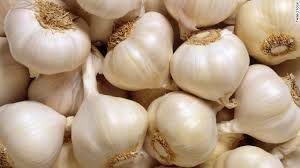
Garlic has been used over millennium for its immune-boosting, anti-viral, anti-bacterial, and anti-fungal effects. Garlic is a powerhouse in the list of plant medicines. It has been found to actually be toxic to more than 14 different types of cancer cells, such as brain, gastric, lung, breast, and pancreatic. The benefits from using garlic fall into 4 different categories.
- Reducing inflammation – reduces the risk of osteoarthritis, and other inflammation-related diseases
- Boosting immune function – anti-bacterial, anti-viral, anti-fungal, and anti-parasitic properties
- Improving cardiovascular health
- Circulation – protects against clotting, improves lipids, retards plaque, and reduces blood pressure
Peppermint
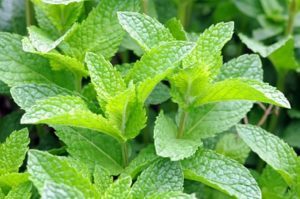
Peppermint oil capsules are considered the first choice in digestive health, and have been used as an effective alternative to pharmaceutical drugs to overcome spasms in the colon. It has been used to relax the muscles in the intestine which is a more effective method to release gas, and therefore easing abdominal pain that comes with it.
In ages past, local healers would use peppermint for its known benefits to the respiratory system, including asthma, coughs, colds, allergies, and tuberculosis. Peppermint oil has been used as an expectorant, decongestant, and can offer relief to clear the respiratory tract. It has also been used for stress relief, and memory enhancement. It has been used to relieve pain caused by tension headaches, and is ideal for muscle and chest rubs, and dental care.
Lavender
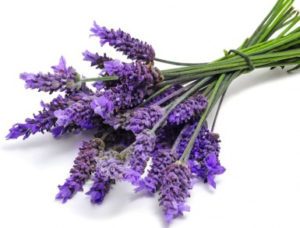
Lavender is another one of those powerhouse plants used over centuries for its anti-spasmodic, calming, and stimulating properties. It also contains anti-bacterial, anti-inflammatory, and anti-viral properties which are effective at fighting antifungal-resistant skin and nail infections. Lavender oil is often used to:
- Relieve pain to ease joint pain and rheumatism, sore or tense muscles, sprains, backache, and lumbago,
- Treat various skin disorders such as acne, eczema, psoriasis, and wrinkles. As it helps to form scar tissue, it is known to be essential in healing cuts and burns, and wounds. Soothes irritated skin from insect bites and itchy skin,
- Keep your hair healthy as it kills lice, lice eggs, and nits, and even possibly effective for treating hair loss, as in recent studies it boosted hair growth by up to 44 percent,
- Improve your digestion by triggering production of bile and gastric juices, which may help treat indigestion, stomach pain, colic, flatulence, vomiting, and diarrhea,
- Relieve respiratory disorders by mitigating respiratory problems such as colds and flu, asthma, throat infections, cough, sinus congestion, whooping cough, bronchitis, tonsillitis, and laryngitis,
- Stimulate urine production which helps restore hormonal balance, prevent cystitis (inflammation of the urinary bladder), and relieve cramps and other urinary disorders,
- Improve your blood circulation by lowering elevated blood pressure levels, and can be used for hypertension.
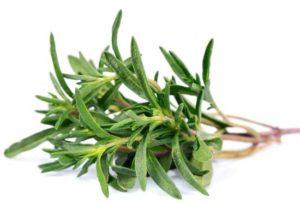
Thyme is brimming full of anti-oxidants. This humble herb has been known to protect and increase the percentage of healthy fats found in cell membranes, particularly in the brain, heart, kidney cell membranes. It contains vitamin A, vitamin C, iron, copper, manganese, and dietary fiber. When used in cooking, it is a potential preventor of premature aging, and heart disease. It also includes anti-spasmodic, anti-bacterial, expectorant, hypertensive, and calming properties. The list of remedies include:
- Home remedy to relieve and treat problems like wounds, bites, sores, gout, arthritis, menstrual and menopausal problems, water retention, nausea and fatigue, respiratory problems (like colds), skin conditions (oily skin and scars), hangovers, depression, and even athlete’s foot,
- Aromatherapy oil to strengthen memory and concentration, stimulate the mind, and calm the nerves,
- Hair product in treatment for the scalp, and is added to shampoos and other hair products,
- Skin product to prevent acne outbreaks , and tone aged skin
- Mouthwashes and herbal rinses is used to improve oral health
- Insecticide/insect repellent to keep insects and parasites like mosquitoes, fleas, moths, and lice away.
Chamomile
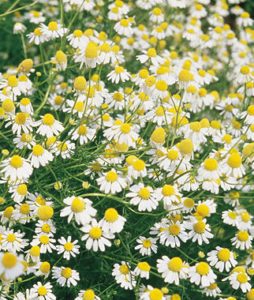
Chamomile is a powerful anti-inflammatory that also has anti-bacterial, anti-allergenic, anti-spasmodic, sedative properties, and muscle relaxant. It is used to treat psoriasis, chickenpox, eczema, diaper rash, abscesses, slow-healing wounds, and gum inflammation. Many people use the oil for its calming effects, and it has been beneficial to ease frayed nerves, induce sleep, and promote a general sense of well-being, and calmness. It is great for those with nervousness or anxiety problems. Aside from having mental calming properties, chamomile is also good at relaxing tight joints, and sore muscles. When applied directly to the skin, it soothes redness and irritation. Because of these benefits, it is a common ingredient in skincare. It is good for those with allergic reactions, and also eliminates itchiness. Because of its anti-inflammatory properties, it is effective in reducing swelling caused by skin irritants or rashes.
Dandelion
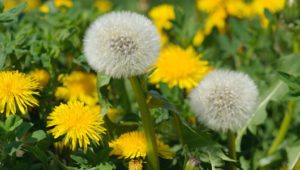
While many home gardeners consider this plant a pesky weed, healers have used this plant for natural remedies for centuries. It has been used as a liver tonic, and can be used for detoxification and improvement in liver function. It has recently been used to reduce the side effects often common when taking prescription drugs. It can be used to address water retention, swelling, infections, and gallbladder problems. Dandelion leaves contain many nutrients, including vitamin C, vitamin B6, calcium, , iron, thiamin, riboflavin, potassium, and manganese. They are a particularly good source of vitamin A.
Up until the early 1900’s, it was easy to find any number of these herbal remedies for sale at a local pharmacy. Most people of that time considered the plants found in their own backyard their ‘pharmacy’, as medicinal plants were the only ‘medicine’ available. But with the increase in usage of ‘modern’ medicine in the early 1900’s, traditional medicine came to be seen as folk medicine. That knowledge gained and improved for centuries was slowly lost, while people considered the new drugs and healing approaches as superior.
Recently that has begun to change though as many are looking to alternative forms of healing gained from age-old remedies. Plant medicine remedies worked in the past, and for centuries, and they are just as effective today.
Contact us if you would like to learn more about plant medicines, and their health benefits.
